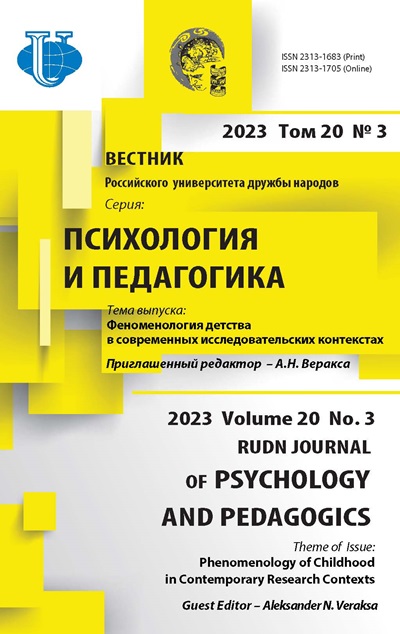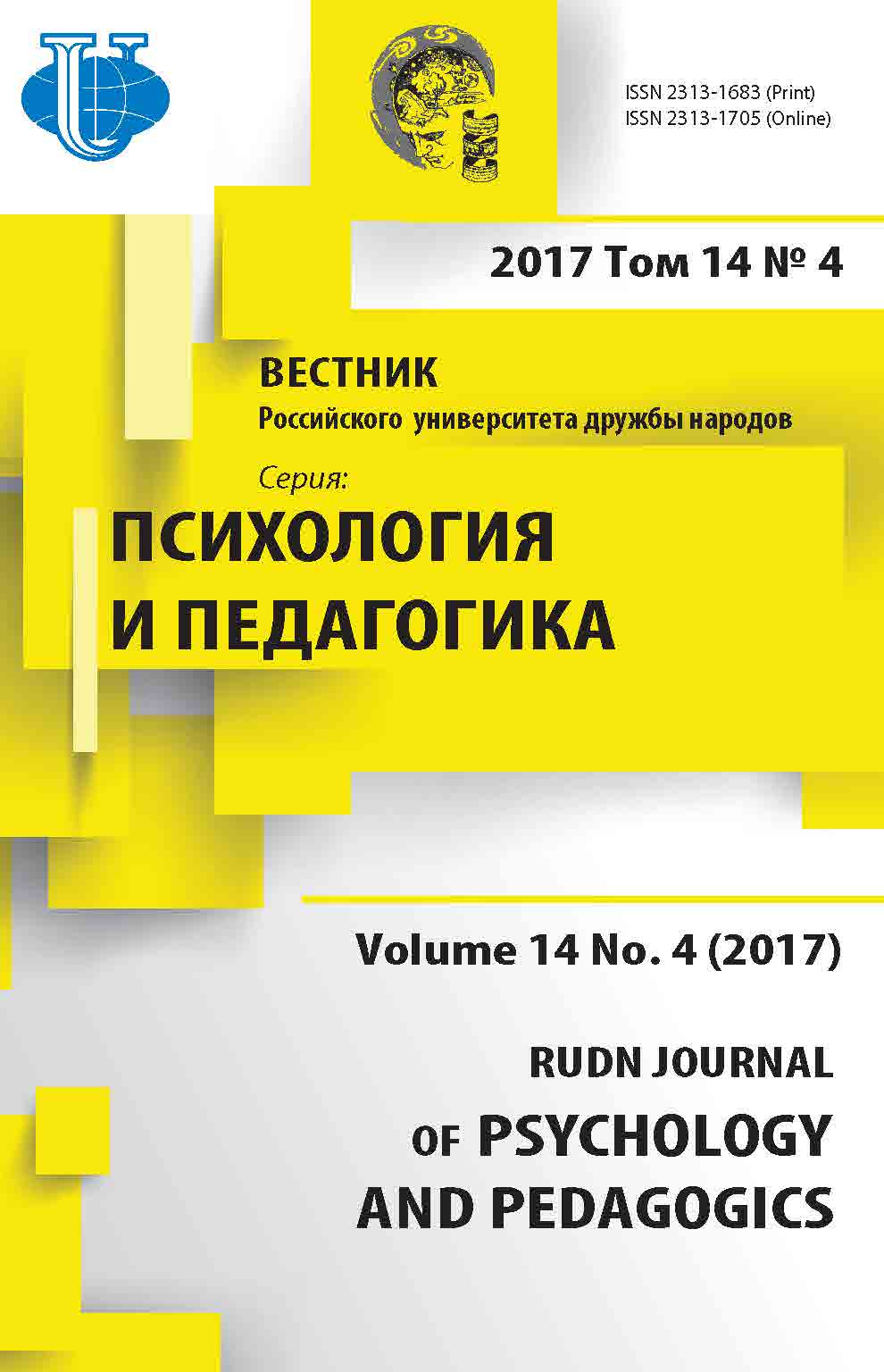CURRICULUM DESIGN FOR TRAINING SPECIALISTS IN THE SPHERE OF UPBRINGING IN THE CONTEXT OF PROFESSIONAL STANDARDS
- Authors: Emelyanova I.N1
-
Affiliations:
- Tyumen State University
- Issue: Vol 14, No 4 (2017)
- Pages: 466-477
- Section: Articles
- URL: https://journals.rudn.ru/psychology-pedagogics/article/view/17260
- DOI: https://doi.org/10.22363/2313-1683-2017-14-4-466-477
Cite item
Full Text
Abstract
The article examines the new guidelines and priorities for modelling specialists’ training in the field of upbringing in the context of the new professional standard.Research method - content analysis for the professional standard “Specialist in the field of upbringing”. The content analysis was carried out according to the types of activities that are identified in the federal state educational standards of the pedagogical direction: pedagogical, project, cultural and educational, research, methodical, and managerial activity. The study revealed a priority of pedagogical, methodological, and managerial contents for training specialists in the field of upbringing. Socio-cultural content lags behind, scientific research content is reduced to zero.Polemical issues: “What does the emergence of new spheres of activities ‘expert in the field of social upbringing’ give us? To what degree professional and educational standards should be identical?” are considered. The need for professional training model to focus not only on the priority content outlined in the professional standards is proved. It is necessary to set cultural and developmental tasks.The model for socio-pedagogical training of a specialist in the field of social upbringing is offered on the example of the master’s level “Methodology and methods of social upbringing” educational program implemented at the Tyumen State University. A general conclusion is drawn on the need to establish a new educational policy in the field of social pedagogical training.
About the authors
Irina N Emelyanova
Tyumen State University
Author for correspondence.
Email: matra2005@yandex.ru
Irina N. Emelyanova - Doctor of Pedagogical Sciences, Associate Professor, Head of the Department of General and Social Pedagogy, Tyumen State University (Tyumen, Russia).
Semakova str., 10, Tyumen, Rossia, 625003References
- Artamonova, E.M. (2013). Formation of a Teacher’s Innovative Competence during the Process of Education at a Higher Education Institution. Pedagogical Education and Science, (5), 17—26. (In Russ).
- Disterveg, A. (1956). Izbrannye pedagogicheskie proizvedeniya. Moscow, 1956. (In Russ).
- Guruzhapov, V.A., & Margolis, A.A. (2014). Designing models of practice-oriented undergraduate training program in Psychological and Pedagogical Education (Primary school teacher) based on networking of educational institutions, implementing higher education and primary education programs. Psychological Science and Education, 19(3), 143—159. (In Russ).
- Kaslow, N.J., Rubin, N.J., Bebeau, M.J., Leigh, I.W., Lichtenberg, J.W., Nelson, P.D. (2007). Guiding Principles and Recommendations for the Assessment of Competence. Professional Psychology: Research and Practice, 38(5), 441—451. doi: 10.22363/2313-1683-2017-14-4:10.1037/0735-7028.38.5.441
- Kazarenkov, V.I., Segen-Matyevich, A.J., & Kazarenkova, T.B. (2015). Psychological and Pedagogical Bases of Organization of Joint Activity of Universities and Educational Institutions. RUDN Journal of Psychology and Pedagogics, (1), 71—78.
- Norton, L.S. (2009). Action research in teaching and learning: A practical guide to conducting pedagogical research in universities. London: Routledge, 2009.
- Zabrodin, Yu.M., & Gayazova, L.A. (2013). The Professional Standard of a Teacher: The Problems of Socio-Professional Discussion. Psychological Science and Education psyedu.ru, (3). URL: http://psyedu.ru/files/articles/psyedu_ru_2013_3_3379.pdf (In Russ).
- Zagvyazinskii, V.I., & Atakhanov, R. (2006). Metodologiya i metody psikhologo-pedagogicheskogo issledovaniya. Moscow: “Akademiya” Publ. (In Russ).
- Zvonnikov, V.I., & Chelkysheva, M.B. (2009). Kontrol’ kachestva obucheniya pri attestatsii: komptentnostnyi podkhod. Moscow: Universitetskaya kniga. (In Russ).
- Mudrik, A.V. (2009). Man in the Process of Socialization: as Existing in Three Persons. St. Tikhon’s University Review. Pedagogy. Psychology, (3), 7—16. (In Russ).
















